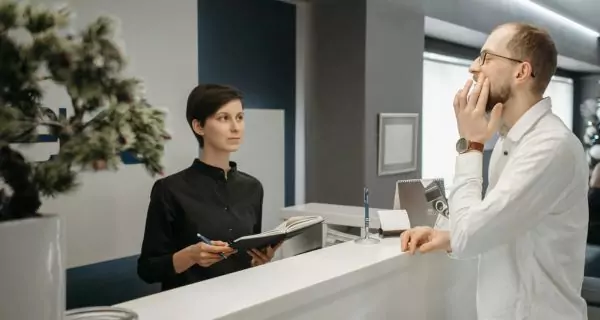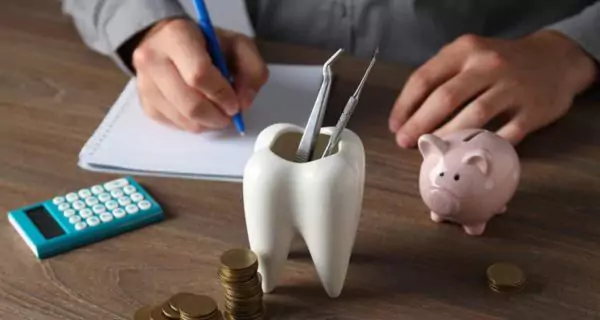
Dental tourism can be safe if you plan well, choose the right clinic, and follow expert advice. Many patients save 50–70% on treatments like dental implants, crowns, and veneers while enjoying a trip abroad. But to protect your health, you need to understand the risks and prepare carefully.
For many people, getting dental care at home is a real challenge. In countries like the U.S., treatments such as implants, crowns, or veneers can cost thousands of dollars, and not everyone has dental insurance to help cover the expense.
Because of this, many people choose to travel abroad for treatment. This trend, called dental tourism, often makes it possible to get quality care at a lower price, even when you add flights and hotels.
But saving money is not the only point. Planning and safety are key before you decide to travel for dental work.
Table of Contents
ToggleWhy is dental tourism becoming so popular?

Dental tourism refers to traveling to another country for dental treatment. This kind of tourism is growing fast because many people cannot afford dental care in their own country.
The high costs at home and the long waiting lists often make patients delay or avoid treatments they really need or want.
At the same time, the chance to discover a new country makes dental tourism even more attractive. Many people who enjoy traveling view it as a way to combine healthcare with a new cultural experience.
What are the main risks of dental tourism?
Dental tourism can make high-quality dental care more affordable, but it is not risk-free. Being informed about the potential problems will help you prepare and protect your health.
What happens if there is no post-treatment follow-up?
Many dental procedures, such as implants and crowns, require follow-up visits to monitor healing. If you return home too soon, you may never see the same dentist again. Complications like infection, swelling, or implant failure may appear weeks later.
How to protect yourself:
- Choose a clinic that offers teleconsultations (video calls after you return home).
- Ask if the clinic can coordinate follow-up with a dentist in your country.
- Stay in the destination for a few extra days to allow at least one post-surgery check.
Why do dental standards and regulations differ abroad?
Every country has different rules for hygiene, sterilization, and professional training. In some places, dentists may use cheaper materials, old equipment, or have fewer regulations to follow. If you do not check this, you may face low-quality treatment.
How to protect yourself:
- Look for clinics with international accreditations or partnerships with global dental associations.
- Ask detailed questions about sterilization, equipment, and materials used.
- Verify your dentist’s training and experience in your specific treatment.
Can language barriers affect my treatment?

Clear communication is essential in healthcare. If you and the dentist cannot fully understand each other, mistakes may happen. You may not explain your medical history well, or the dentist may give instructions you don’t understand. This can cause complications during treatment or recovery.
How to protect yourself:
- Confirm that the clinic staff speaks your language or provides a translator.
- Bring translated medical records, allergy lists, and prescriptions.
- Consider hiring a translator if your case is complex.
How can hidden costs affect your savings?
Advertised prices often exclude extra procedures like X-rays, bone grafts, or extractions. If complications arise, you may end up spending more than you would have at home.
How to protect yourself:
- Ask for a detailed treatment plan with all costs before traveling.
- Make sure the clinic offers a written guarantee for implants, crowns, or veneers.
- Buy travel medical insurance that covers dental emergencies abroad.
- Set aside extra money in case of unexpected expenses.
Are there legal and safety issues?
Legal protections for patients vary widely. If malpractice occurs abroad, pursuing compensation can be difficult, expensive, or even impossible.
How to protect yourself:
- Research local laws on medical malpractice.
- Prefer clinics that provide contracts outlining responsibilities and guarantees.
- Understand that legal recourse may be limited outside your home country.
Dental tourism can save money and offer quality care, but the risks are real. For that reason, it’s important to consider all those factors. Making careful research and planning, you can reduce these risks and make dental tourism a safer option.
How much money can you really save with dental tourism?

On overage, patients save 30 – 70% compared to prices in the U.S or Western Europe.
Here is a simple comparison (USD):
Treatment | Abroad | U.S. / Western Europe | Savings |
Dental implant (per tooth) | $1,500–3,000 | $3,000–6,000 | 40–60% |
$8,000–15,000 | $25,000–40,000 | 50–70% | |
Full mouth reconstruction | $6,000–12,000 | $15,000–30,000 | 40–60% |
Ceramic veneers (per tooth) | $300–600 | $800–2,000 | 50–70% |
Wisdom tooth extraction (per tooth) | $100–300 | $300–800 | 50–65% |
$150–500 | $500–1,200 | 40–60% |
Many clinics also offer all-inclusive packages that may cover transportation, hotel stays, and even local tours. This can make dental tourism not only more affordable but also more convenient.
What expert tips can help make dental tourism a safe experience?
Dental tourism can help you save money and enjoy quality care abroad. But to stay safe, you need to prepare well. Let’s see some tips that can be useful if you are looking for this option.
How can I verify a clinic’s credentials?
Do not trust only advertisements or low prices. Look for:
- International certifications (ISO, FDA, CE, or membership in global dental associations).
- Professional memberships in recognized dental organizations.
- Specialized experience in the procedure you need.
- Before-and-after photos of real patients (not stock images).
Why should I check patient reviews?

Patient reviews reveal what you won’t see in ads. To get an honest picture:
- Use platforms like Google Reviews, Trustpilot, or health forums.
- Read both positive and negative comments for balance.
- Ask the clinic if you can speak with former patients for real feedback.
How much recovery time should I plan?
Rushing your return trip can cause complications. For safety:
- Stay a few extra days after implants, wisdom tooth extraction, or surgery.
- Allow time for swelling to reduce and stitches to heal.
- Schedule at least one follow-up visit before flying back.
- Never plan to travel the day after treatment.
Why should I coordinate with a local dentist?
A local dentist is your long-term support. They can:
- Review your treatment plan before the trip.
- Provide follow-up care when you return.
- Assist if any unexpected issues appear later.
What should I ask about materials and guarantees?
The quality of materials affects durability and safety. Always ask:
- Which brands of implants, veneers, or crowns are being used.
- If materials are FDA- or CE-certified.
- Whether the clinic offers a written warranty or guarantee for corrections if needed.
What medical documents should I bring?
Having your records ready avoids errors and speeds up treatment. Bring:
- Recent dental X-rays.
- Complete medical and dental history.
- A list of medications and allergies.
- Details of previous dental work.
Dental tourism can be a safe and cost-effective choice if you prepare correctly. The most important thing is to choose the right clinic, verify its standards, allow recovery time, and keep your local dentist involved. By following these tips, you can maximize your savings without sacrificing your health.
How can I evaluate a clinic before traveling?

Choosing the right clinic is the most important step in dental tourism. To make a safe decision:
- Create a shortlist of clinics: Don’t settle on the first option. Compare at least 3–4 clinics in your destination.
- Request a video call consultation: This helps you meet the dentist, ask about the procedure, and see how professional the team is.
- Compare written treatment plans and quotes: A serious clinic will provide a clear breakdown of costs, materials, and recovery time. Avoid vague promises.
- Check dentist qualifications and clinic reputation: Look for dentists trained in respected universities and clinics with international standards or certifications.
- Be cautious with unrealistic promises: If a clinic claims “instant results” or prices that seem too cheap, it may be cutting corners on safety or quality.
The goal is to find a clinic that is transparent, professional, and realistic about your treatment.
Is dental tourism really worth it?
Dental tourism is growing because it offers real benefits: lower prices, fast access, and the chance to travel. But like all medical treatments, it also involves risks. Safety depends on research, careful planning, and smart decisions.
If you verify credentials, prepare your documents, ask the right questions, and allow time for recovery, you can enjoy both high-quality dental care and big savings.
Dental tourism can be safe and rewarding if you take the right steps to protect yourself.
Frequently Asked Questions
How much money can I save with dental tourism?
Which countries are most popular for dental tourism?
Mexico, Costa Rica, Colombia, Hungary, Turkey, and Thailand are among the most popular destinations. They are known for high-quality clinics, lower costs, and easy travel access from the U.S. and Europe.
How long should I stay after treatment?
It depends on the procedure. For minor treatments like whitening, you can travel home the next day. For implants, extractions, or surgeries, plan to stay at least 3–7 days for swelling to go down and for follow-up checks.
What languages do dentists abroad speak?
In popular dental tourism destinations, many dentists and staff speak English or other major languages because they work with international patients. Still, confirm language support in advance to avoid communication problems.
Do I need a visa for dental tourism?
It depends on your destination and nationality. Many countries allow short-term stays for medical treatment without a visa, but some require one. Check the visa policy before planning your trip.
What are the hidden costs of dental tourism?
Extra procedures, travel, accommodations, or emergency corrections can add costs.
What treatments are common in dental tourism?
Implants, veneers, crowns, teeth whitening, and wisdom tooth extractions.
What is dental tourism?
Dental tourism is when you travel abroad to get dental treatment at lower prices.
Share
References
1. Ashiti, S., & Moshkun, C. (2021). Dental tourists: treat, re-treat or do not treat? BDJ, 230(2), 73–76. https://doi.org/10.1038/s41415-020-2591-6
2. Doughty, J., Moore, D., Ellis, M., Jago, J., Ananth, P., Montasem, A., Holden, A. C. L., & Johnson, I. (2025). Contemporary dental tourism: a review of reporting in the UK news media. BDJ, 238(4), 230–237. https://doi.org/10.1038/s41415-025-8330-2
3. Dwiastuti, S. a. P., & Ratih, I. a. D. K. (2025). Exploration on Dental Tourism Development as a medical tourism in Bali. Journal of Health and Medical Sciences, 8(1). https://doi.org/10.31014/aior.1994.08.01.334
4. Oltean, F. D., Gabor, M. R., Stăncioiu, A., Kardos, M., Kiss, M., & Marinescu, R. C. (2020). Aspects of Marketing in Dental Tourism—Factor of Sustainable Development in Romania. Sustainability, 12(10), 4320. https://doi.org/10.3390/su12104320
5. Saxena, V., Deheriya, M., Datla, A. (2023). Bibliometric Analysis of Dental Tourism: A Global Perspective. Int J Travel Med Glob Health; 1 1(2):286-295. https://www.ijtmgh.com/article_173371_2c53709104c1bd6867d42ca43a58d23a.pdf
